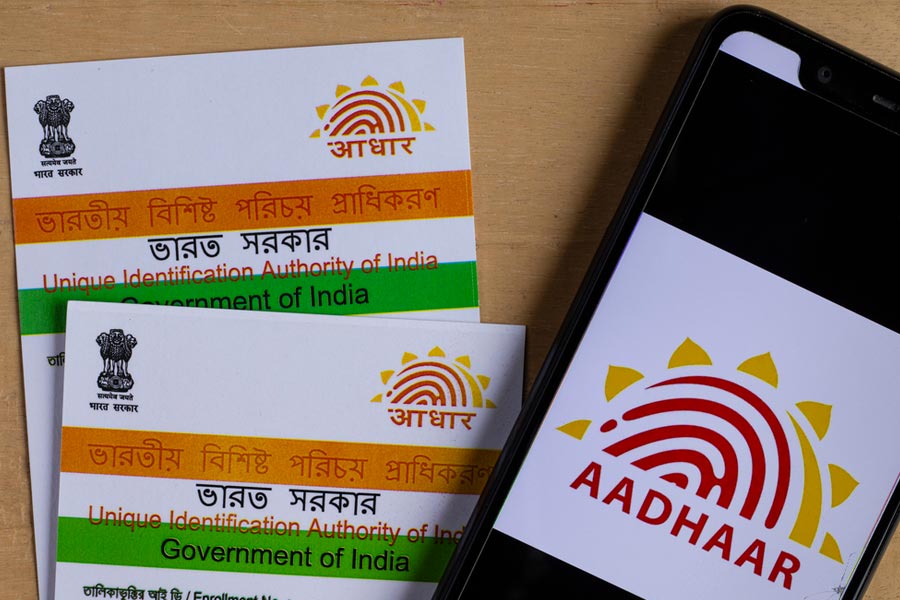The Centre has decided to unlock the biometrics of those who had applied for Aadhaar cards after five years, a development which would pave the way for 9,35,682 affected people to access government benefits and schemes.
Assam chief minister Himanta Biswa Sarma revealed the development here on Wednesday saying those who had applied for Aadhaar during a five-month period from February and August 2019 had their biometrics locked for five years and had to suffer due to it.
“Fulfilling a key election promise, we took up this issue with the Union government, and it’s heartening that they have decided to unlock the biometric of all the affected people, bringing in much-needed relief to them,” Sarma said.
Aadhaar is a 12-digit individual identification number which serves as proof of identity and proof of address for residents of India and also helps the cardholder to access government benefits and schemes.
The Aadhaar problem had become an issue in the recently-concluded Lok Sabha elections since the affected were missing out on the monthly ₹1,200 received under the Orunodoi scheme, free rice, PMAY house or were not able to renew their driving licence, open bank account and file income tax returns.
The chief minister shared the August 27 letter from the Deputy Director General Registrar General of India requesting the Unique Identification Authority of India (UIDAI) to start issuing Aadhaar cards to the affected benefit 9,35,682 from Assam whose biometrics have been locked. It also said that there were no legal issues in issuing the cards. UIDAI is the issuance authority.
The affected will start getting their cards within 15-20 days.
The chief minister said they were also under the impression that about 27 lakh were affected but later they came to know the figure was much less.
The affected could not enrol for Aadhaar registration because their biometrics were frozen/locked during the claims and objections stage for inclusion in the NRC, a register of Indian citizens. The affected included the 7.94 lakh, who made it to the final NRC, and 19 lakh who didn’t, in the final list announced in August 2019.
The biometrics were locked because the then NRC coordinator, Prateek Hajela, had submitted a standard operating procedure (SoP) before the Supreme Court in 2018 saying those excluded from the draft list should not be given Aadhaar cards.
The apex court had accepted the plea, and the bar was not lifted.
Guwahati-based NGO, the Assam Public Works had even moved the apex court requesting the unlocking of the biometrics.
In a letter to Union home minister Amit Shah on June 14, Sarma had stated initially about 26 lakh people were not issued Aadhaar cards as their names were not in the NRC published in August 2019.
“Subsequently, the majority of these people who appeared in the claims and objections got enrolled into the Aadhaar. But about 8
lakh people whose names are in the final NRC have not been issued Aadhaar cards even today.”
He also referred to meetings held between a group of ministers and various stakeholders such as the AASU, which asserted Aadhaar has “no” relation with citizenship, and the NRC and Aadhaar are two separate databases and since a majority of the 26 lakhs have already got their Aadhaar cards, “there is no rationale for holding back those who are included in the final NRC”.
Sarma’s letter then urged Shah to direct the UIDAI to issue Aadhaar cards, “respecting the spirit of orders” of the Supreme Court, to all those in the final NRC and others as “eligible” under Section 7 of the Aadhaar Act, 2016, without further delay. This section deals with targetted delivery of financial and other subsidies, benefits and services of the government.
Aadhaar affected told The Telegraph that though it is a welcome development, the variance in government figures — about 27 lakh and nine lakh plus — remains a worry.











